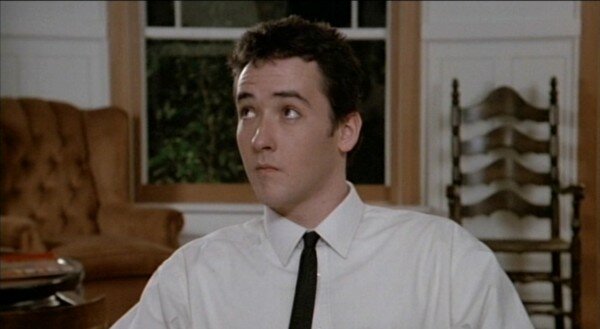Why Is The Media So Fixated On "The End of Courtship?"
Unsurprisingly, John Cusack is involved.

by Lizzie Plaugic
I’m assuming you guys have noticed by now (and are appropriately appalled/frightened by) the end of traditional, rule-guided dating, also known as Courtship-ocalypse. Everyone’s talking about it. The New York Times recently published an article called “The End of Courtship,” which linked the decline in the classic (vintage) "men pursuing women" to the rise of online dating, social media and texting. Then the The Atlantic ran a widely-discussed article in which Dan Slater claimed online dating, because of its 24-hour buffet of options, was destroying monogamy. This was precipitated last month by two different sites blaming the divorce rate on online dating. We seem to be culturally obsessed with the state of conventional dating — but why? Why are we so concerned with making sure good ol' fashioned 20th-century dating — the kind Mom used to make — stays so vital?
1. The internet is a great cultural boogeyman.
As a culture, our relationship with the internet is almost exactly in the middle of the love-hate spectrum. Despite the fact that the internet is pretty much our life-blood, we harbor incredible, highly-publicized resentment of its effects on communication, education, media consumption and a whole bunch more. And what a lot of people in the media have picked up on is that the internet will always be a great thing to lay blame on, because it’s become such an integral part of our society while remaining — to many important demographics — pretty damn mysterious. If Bobby goes to third base with Sally before he meets her mom, and Sally's mom is looking for what's changed since she was a girl, the internet is going to loom large, and thus present a pretty convenient target. Another bonus is, it’s kind of an amorphous collection of computer networks, so when we blame it for things, no one gets cranky, or litigious.
2. Birth control is making women sluts.
You can’t swing a cat these days without hearing about ladies and their desire to have control over their uteri. The Affordable Care Act’s provision on contraception has become one of its most debated, with both religious groups and conservative politicians clamoring to reveal its true nature as a menace to society. (And by "menace to society," I mean "something that challenges the idea of sex as a purely procreative act, thereby undermining the value of monogamy and 'waiting until marriage' as a cultural more.") Plus, we all know that once women get their hands on birth control, they’ll sleep around until their vaginas are sore. And then we'll never hear the end of it.
3. John Cusack has been in a lot of movies.
Perhaps I'm unfairly picking on The Cus, but much of his filmography seems to play into this idea of monogamous, long-lasting relationships as the ultimate goal of romance. Like, why bother at all if you’re not going to be walking down the aisle at the end? And why would you want to have sex with more than one person if you could bump into your soulmate the next time you go to a bookstore? If there’s one thing John Cusack has taught us, it’s that love can a) make a lonely, bitter record store owner feel alright again (High Fidelity), b) ensure that a stranger’s phone number will find its way back to you right before you marry the wrong person (Serendipity), and c) prevent a plane from crashing (Con Air Say Anything). He doesn’t give us a reason to play the field because that religiously-comforting idea of “the one” trumps all, and fate will bring them to you without the help of an internet connection.












Commentarium
comments powered by Disqus